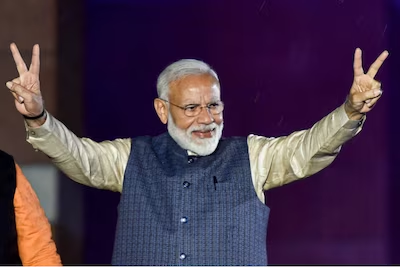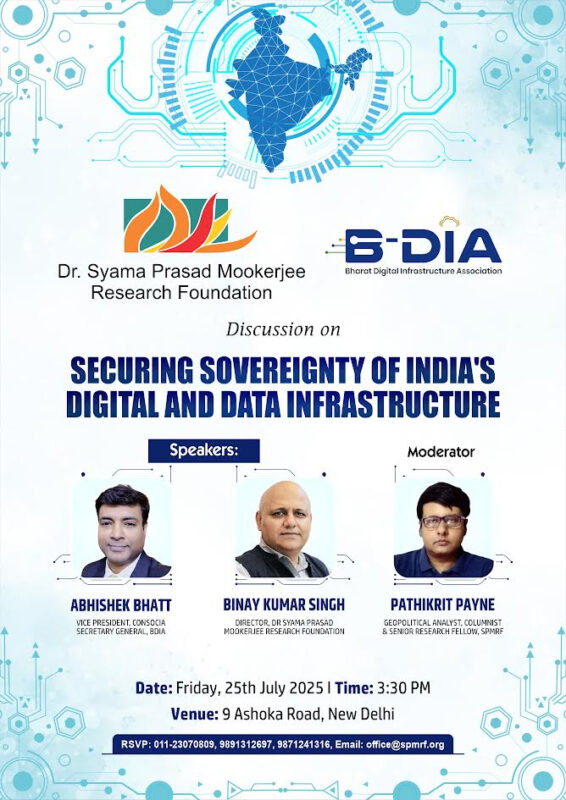Bringing out nearly 25 crore people out of multidimensional poverty and taking Indian economy to newer heights by elevating it to be among the top five economies of the world, even in the midst of a cataclysmic pandemic situation, and several other major external and internal challenges is no ordinary feat. Yet, this is what India has achieved under the leadership of Prime Minister Narendra Modi.
These achievements did not happen in a fluke. Instead, they have been the outcome of tireless perseverance for grassroots level reforms in the delivery system of welfare schemes, initiating major structural reforms to enhance the capacity of the Indian economy to absorb investments, and become more productive, understanding the complexity of challenges faced by India’s underprivileged sections of the society, taking subsequent actions to plug the loopholes, and availing the basic requirements to a significant portion of India’s population that eventually transformed that section from being mere recipient of welfare schemes to active contributors to the economic development of the country.
Even if one does not understand the nuances of what multidimensional poverty is all about, it is quite certain that everyone can relate to how PM Modi, in the first place, ensured that welfare schemes of Government of India, eventually reach to those, who they were meant for. Thus, by initiating a radical transformation in India’s financial landscape, through the pathbreaking JAM trinity of Jan Dhan Bank Accounts, linking them with Aadhar Card and Mobile Number of the account holders, PM Modi ensured that almost every household in India today has a bank account. For more than half a century since independence, it was no less than a tragedy that nearly 50% people of India did not have access to formal banking. Once that riddle was solved by ensuring that every family at least has one bank account, Modi Government opted for the Direct Benefit Transfer (DBT) model for welfare fund disbursement into the accounts of beneficiaries, thereby bypassing all kinds of middlemen and bureaucracy in between. By ensuring funds in accounts of beneficiaries for constructing of toilets under Swachh Bharat Abhiyan, housing under Pradhan Mantri Awas Yojana, funds for starting micro enterprises through MUDRA Yojana, followed by ensuring 10 crore families, in the lower strata would have access to quality healthcare through Ayushman Bharat Yojana, and by giving 80 crore people free additional rations along with free covid vaccines for more than 100 crore eligible people, PM Modi has ensured that the basics of food, sanitation, housing, healthcare and institutional finance is made available to a significant portion of India’s population which were hitherto not available for them. This way, Modi Government ensured that their dignity and self-esteem are redeemed. Once those are done, it is only then that people start aspiring for higher goals in life. And this is exactly what has happened.
MUDRA Yojana ensured more than 8 crore new entrepreneurs have been created, and more than 93,000 micro enterprises now having emerged as small enterprises. Likewise, it is this underprivileged section of the society which is also now a major contributor as consumers as well. With PM Modi led NDA Government giving major impetus to rural road connectivity, and with digital connectivity reaching newer heights in India, a large array of rural products are now getting access to better markets in urban India and beyond.
A nation of 140 crore people is all about aspirations of 140 crore and not just about the basic necessities of them. What PM Modi has done is to ensure that Government becomes the catalyst in making sure that the basic necessities are addressed. This in turn is helping a large section of Indian populace to now pursue their dreams for themselves and for India. This, in the long run would have major positive impact for India’s growth story. Many of India’s next generation of top notch entrepreneurs and innovators would emerge from this part of aspirational India. India has elevated 5 crore people out of multi-dimensional poverty and have given them wings to purse their multi-dimensional aspirations.
(The views expressed are the author's own and do not necessarily reflect the position of the organisation)


